Does the dog's individual character determine the dog, or is the dog breed the main factor? And what are the BEST dog breeds? Let's find out!
JOIN MY FREE REACTIVITY CLASS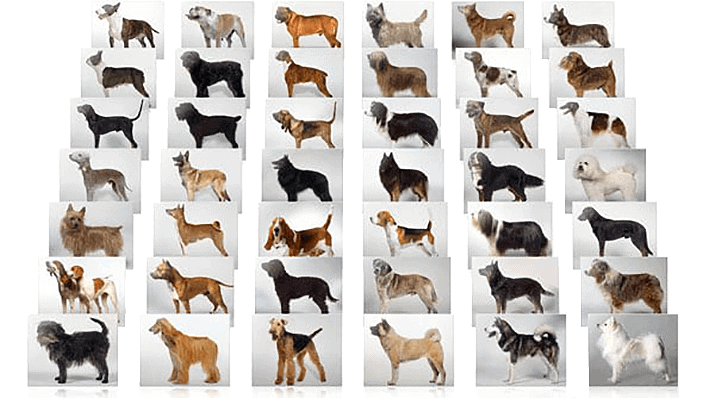
Key Takeaways
- While breeds might have tendencies, individual personalities, and experiences play a huge role in a dog's behavior. A Golden Retriever might not always be the perfect family dog, and a Husky in the right environment can be more than just a working dog.
- Don't limit yourself to popular breeds! Mixed breeds and less popular breeds can also be excellent companions. Consider factors like your lifestyle and living space to find the right fit.
- When choosing a dog, consider their personality, upbringing (including socialization), training, and how well you can provide for their needs. These factors will have a much more significant impact on their behavior than just breed.
The Most Popular Dog Breeds and What They're Associated With
Labrador Retriever: The Best Family Dogs
Labs are everyone's favorite dogs for a reason. They are renowned for their friendliness, intelligence, and eagerness to please. Their love of fetching and playful nature make them excellent family dogs.
French Bulldog: Low-Maintenance Cuddler
The compact charmer currently topping the charts, French Bulldogs are known for their bat ears, affectionate personalities, and adaptability. These low-maintenance companions thrive in apartments and love to cuddle on the couch.
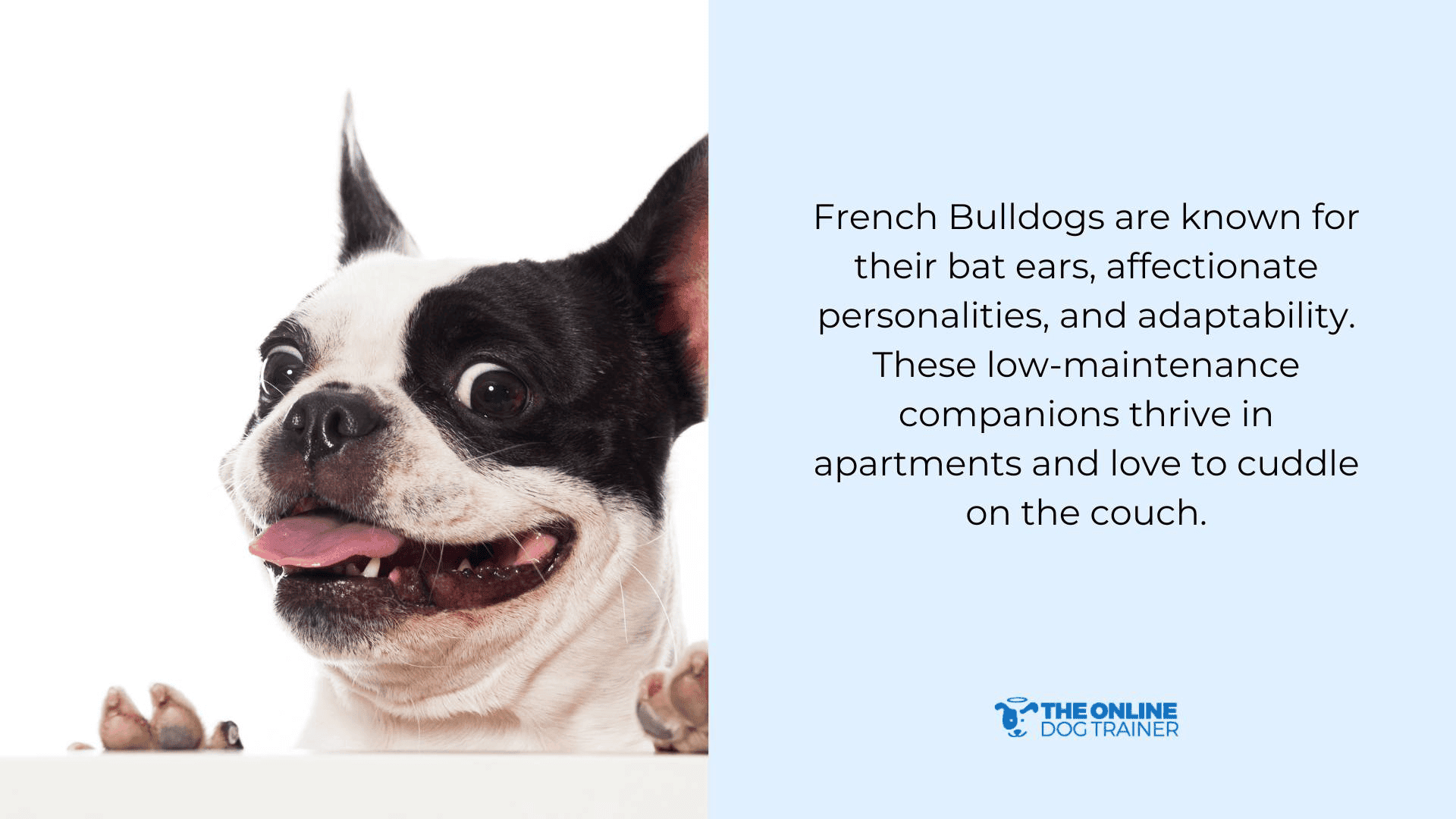
Golden Retriever: The Good Family Dog
Golden Retrievers are sunshine personified! These gentle giants are admired for their loyalty, trainability, and sweet disposition. Golden Retrievers excel in various roles, from guide dogs to therapy dogs, thanks to their intelligence and even temperament.
German Shepherd Dog: The Intelligent Guard Dogs
Synonymous with intelligence, loyalty, and protectiveness, German Shepherds are often used as working dogs in police and military forces. Their impressive trainability and focus make them excellent companions for active owners seeking a loyal guardian.
Poodle: Known for Their Fancy Look
Don't let their fancy haircuts fool you! Poodles come in standard, miniature, and toy sizes, but all share a reputation for being highly intelligent, athletic, and hypoallergenic. These energetic dogs excel in dog sports like agility and require consistent training to stimulate their minds.
Dachshund: The Courageous and Great Family Dog
The long and low Dachshund, nicknamed the “sausage dog,” packs a big personality! Known for their independence, feistiness, and loyalty, Dachshunds are surprisingly courageous and love to burrow and explore.
FREE REACTIVITY MASTERCLASSBest Dogs To Own: Does Breed Matter?
Is a dog's breed a major, unchangeable factor in your dog's behavior? Let's talk about it.
The discussion about the best dog breeds to own brings up various views. Almost everyone has an opinion, and of course, as a dog behaviorist, I always find it fascinating to hear about everyone's different experiences with the various dog breeds.
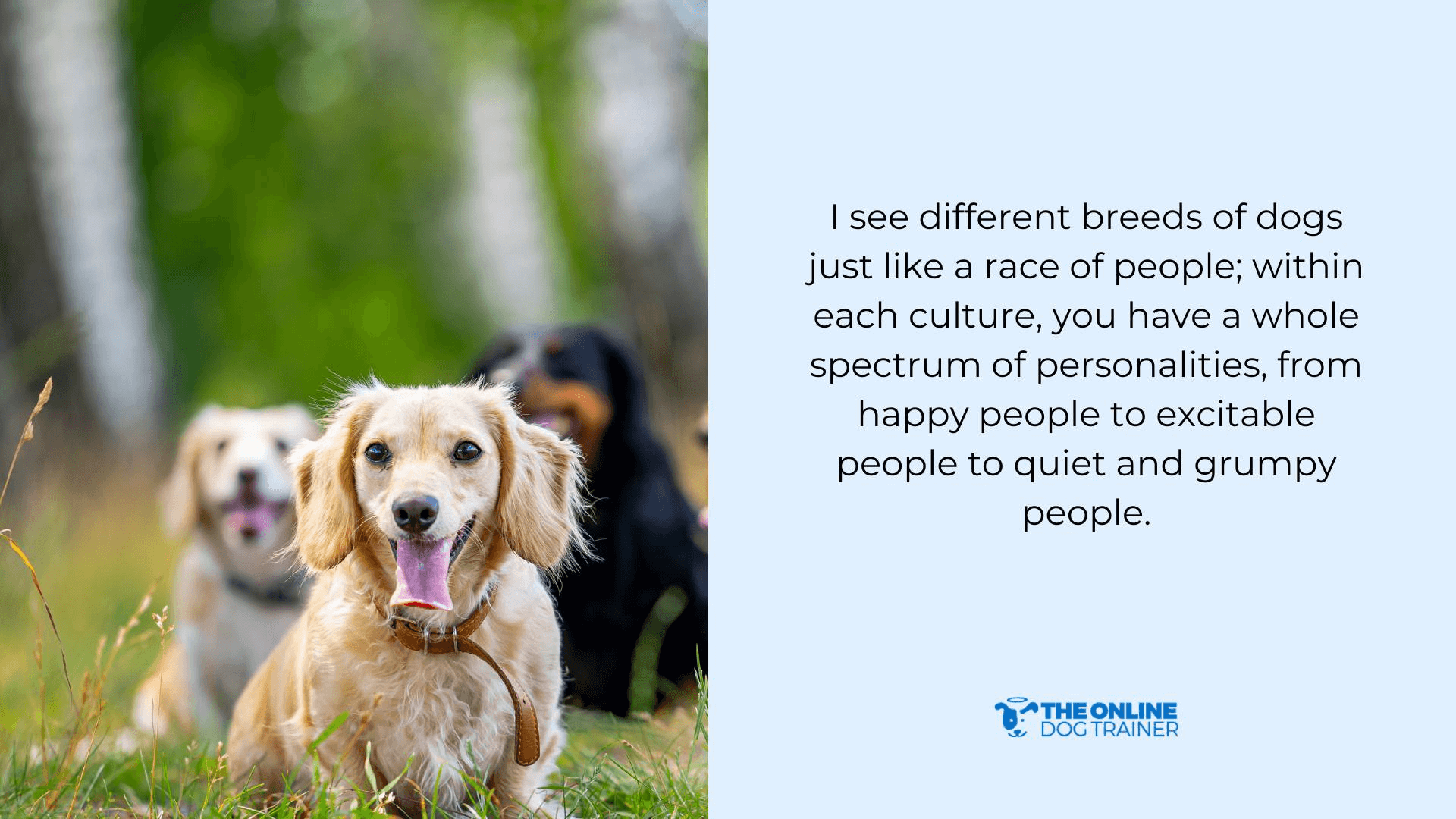
There is one point that is confirmed through every conversation I have, though: dogs are always different.
So where does the breed come into it?
I know some people won't agree with me – it is generally thought that each breed of dog has a certain temperament, and that's that. But I see different breeds of dogs just like a race of people; within each culture, you have a whole spectrum of personalities, from happy people to excitable people to quiet and grumpy people. And having done the job I've done for so long, I have seen every type of personality within every single breed.
GET MY FIVE GOLDEN RULES FOR FREEWhy Basing On Breed Is Not Enough: Same Dog Breed, Different Personality
Huskies have a great reputation as the best family dogs. In my experience, this assumption can be challenged.
I used to work with a family with one wonderful husky! Everyone thought they were the best family dog, they decided to get another because they love the breed. Eventually, they introduced a second one and are amazed that the dog is completely different. It was frustrating for the owner!
But here's the truth: it isn't unfair or bad luck; the reality is that no two Huskies are actually the same.
Why Breed Should Not Be the Only Factor When Choosing The Best Dogs to Own
Reason #1: Breed Affects Only A Little Percentage of A Dog's Personality
In the world of dog owners, a labrador retriever is associated with ease. They're easy to train, don't always show aggression, and are extremely friendly.
However, not all labrador retrievers will show the same personality. In fact, dogs exposed to harsh, scary circumstances will adapt, which makes them reactive and aggressive, even if they're sweet, affable labrador retrievers.
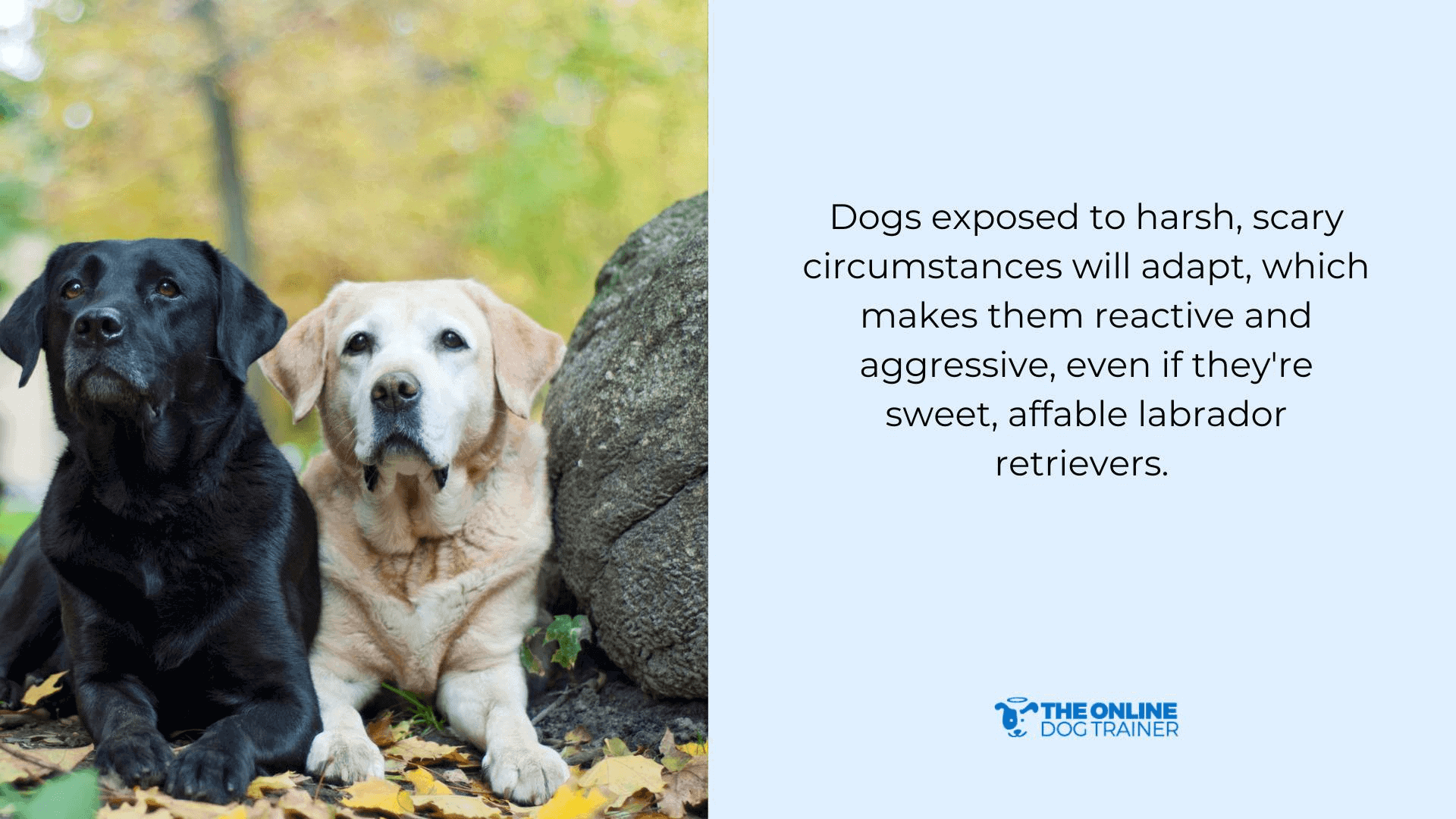
Now, let's flip to the other side of the coin.
You can also retrain aggressive and reactive dogs. Dog breeds like the German Shepherd, Rottweiler, and popular guard dog breeds are always assumed to be violent and dangerous. However, with the proper training and addressing the root cause of your dog's aggression, you will see a change in behavior in big, powerful dog breeds.
Reason #2: Apart From Basing On Popular Dog Breeds, You Can Miss Out On Other Wonderful Dogs!
I've encountered pet parents in the past who wanted to stick with one dog breed because they assumed certain dog breeds were the best!
But thinking only one dog breed is a match for you and your family can stop you from discovering the other wonderful dogs that are also a joy to have. Even those breeds that get a bad reputation can actually become great family dogs!
REVERSE REACTIVITY (FREE WEB CLASS)Same Breed, Different Personalities: How A Dog Behaves Go Beyond the Breed
Within a litter of puppies, it is pretty much accepted that you will have a dominant puppy, a submissive puppy, a clown, and perhaps a thinker. That litter of puppies is all the same breed, yet they are all different in terms of their personalities and character.
I have seen almost every behavioral issue within every breed of dog.
Blue Heelers have a bit of a stereotype of being a nippy and biting breed, and I have worked with several who do display these traits. However, I have also worked with almost every other breed of dog that also nips and bites! So once you have seen it across the board, you stop thinking it is purely a breed behavior.
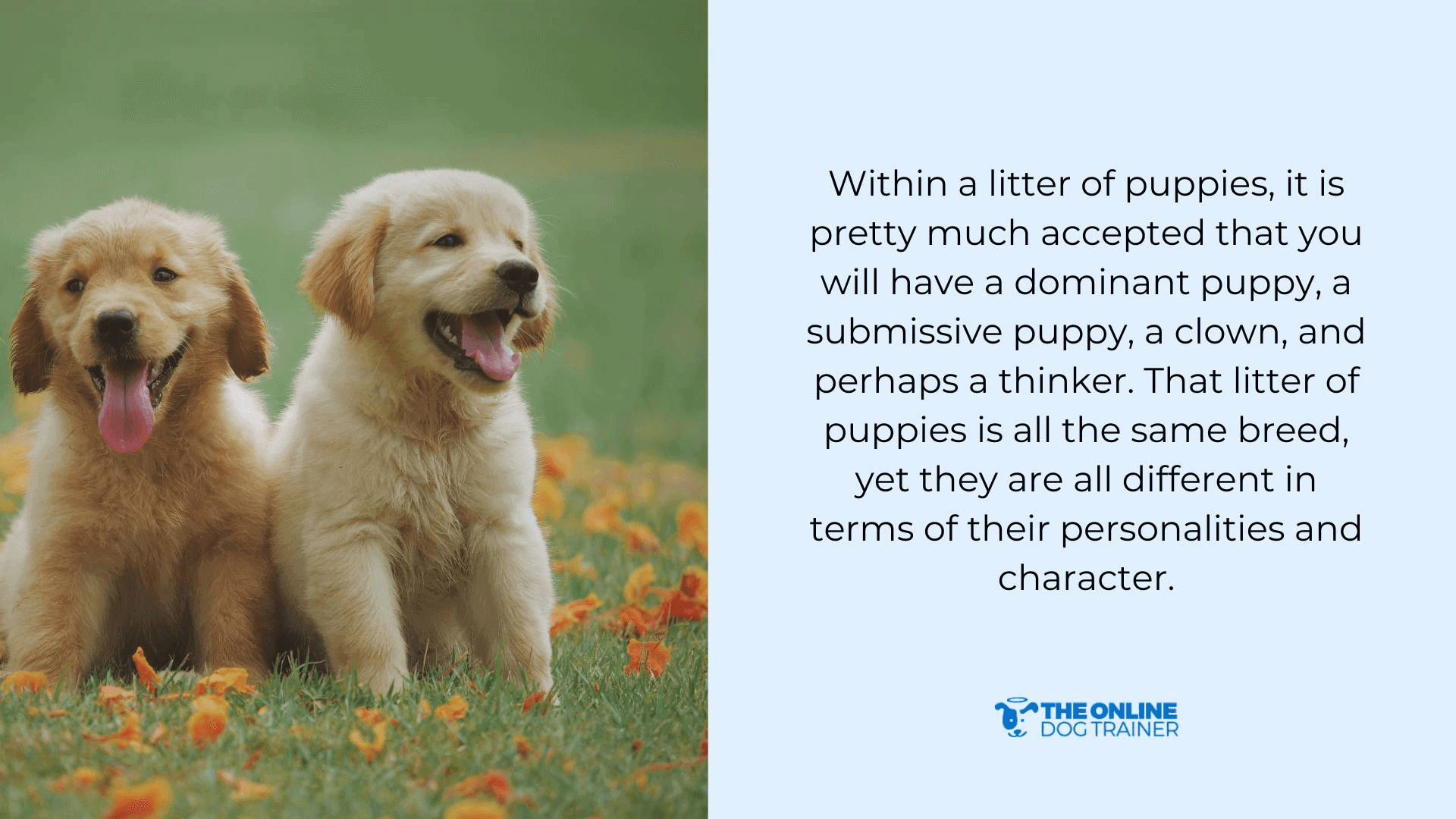
It is not so black and white. In fact, aggressive dogs can be any breed, shape, or size, including little lap dogs.
That said, of course, if you are bitten by a 60kg dog, it will be a lot worse than if you are bitten by a 3kg dog. So, size does come into it.
REACTIVITY SOLVED (NO FOOD, NO FORCE!)Factors That Affect The Personalities of Different Dog Breeds
Factor #1: Environment
Imagine a Husky in a tiny apartment versus a sprawling ranch.
The environment a dog lives in significantly impacts their personality. A high-energy breed like a Husky thrives with ample space to run and explore, while a smaller breed like a Pug might be perfectly content lounging on the couch.
Now, if your active breed dog — like your husky — is in a crammed space with no free area to run and play, they can start showing agitated behavior. If they lack daily exercise because of lack of space, their personality can change. They can get health problems, too!
Is it purely because of their breed? No, if you consider a Husky's rep of being a gentle giant. The environment they're in has a huge effect on how they behave.
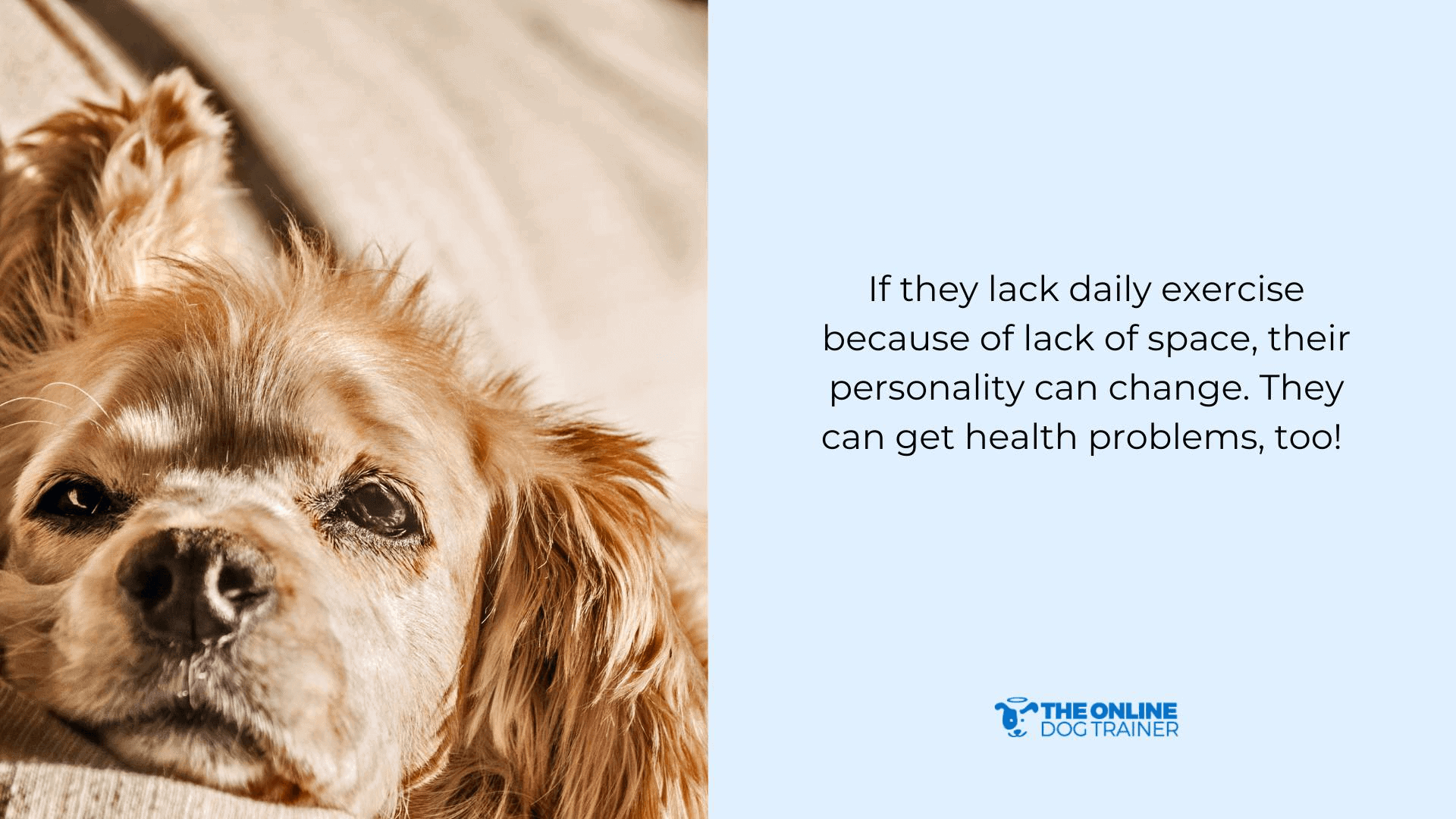
Factor #2: Experience
One of the most common mistakes pet owners make is getting a puppy or a dog without checking the history.
They get a Golden Retriever because they're known as loyal dogs; having that in the family is a joy.
They get a German Shepherd because they're excellent guard dogs!
And then, when everyone's home, the issues start to show. The Golden Retriever is reactive and shows non-stop barking. The German Shepherd is so anxious they can't do the guarding well.
In the dog world, early experiences in a puppy's life have a lasting impact.
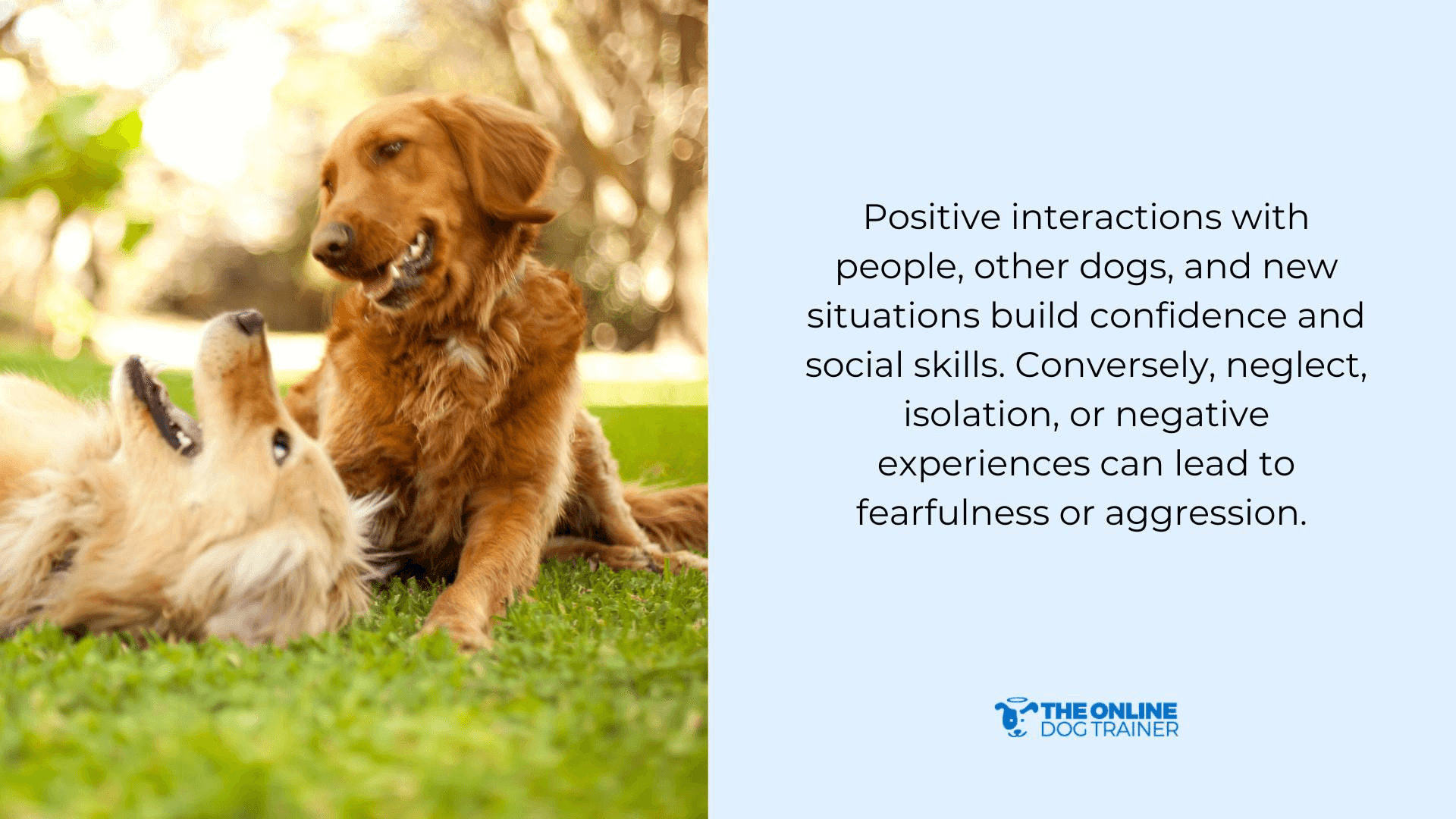
Positive interactions with people, other dogs, and new situations build confidence and social skills. Conversely, neglect, isolation, or negative experiences can lead to fearfulness or aggression.
Understanding your dog's past experiences is crucial to knowing them.
For example, providing herding dogs with opportunities to herd objects or engage in puzzle toys can channel their energy positively.
It's not just about their breed.
Factor #3: Training (Or Lack Thereof)
Training isn't just about teaching tricks; it's about establishing communication and boundaries. A well-trained dog feels secure knowing what's expected of them.
Breeds known for their intelligence and eagerness to please, like Border Collies, excel with consistent training that challenges their minds. However, a lack of training can lead to frustration, boredom, and behavioral issues in any breed.
Factor #4: Reactivity and Aggression Caused by a Lack of Leadership:
Dogs are social creatures who crave structure and leadership. Without a clear leader, some breeds, particularly guard dogs and working dogs might become anxious or try to take charge themselves.
And when dogs — no matter the breed — think they're in charge of you and the property, they will become reactive and aggressive.
(Learn all about dog reactivity here.)
Providing firm but fair leadership through consistent rules and expectations builds trust and helps a dog feel secure in their role within the family unit.
JOIN MY FREE REACTIVITY CLASSFactor #5: Lack of Socialization
Lack of socialization in a puppy's critical development window can trigger a cascade of behavioral problems. Without exposure to other dogs and new situations, they might become fearful or reactive, leading to aggression or anxiety.
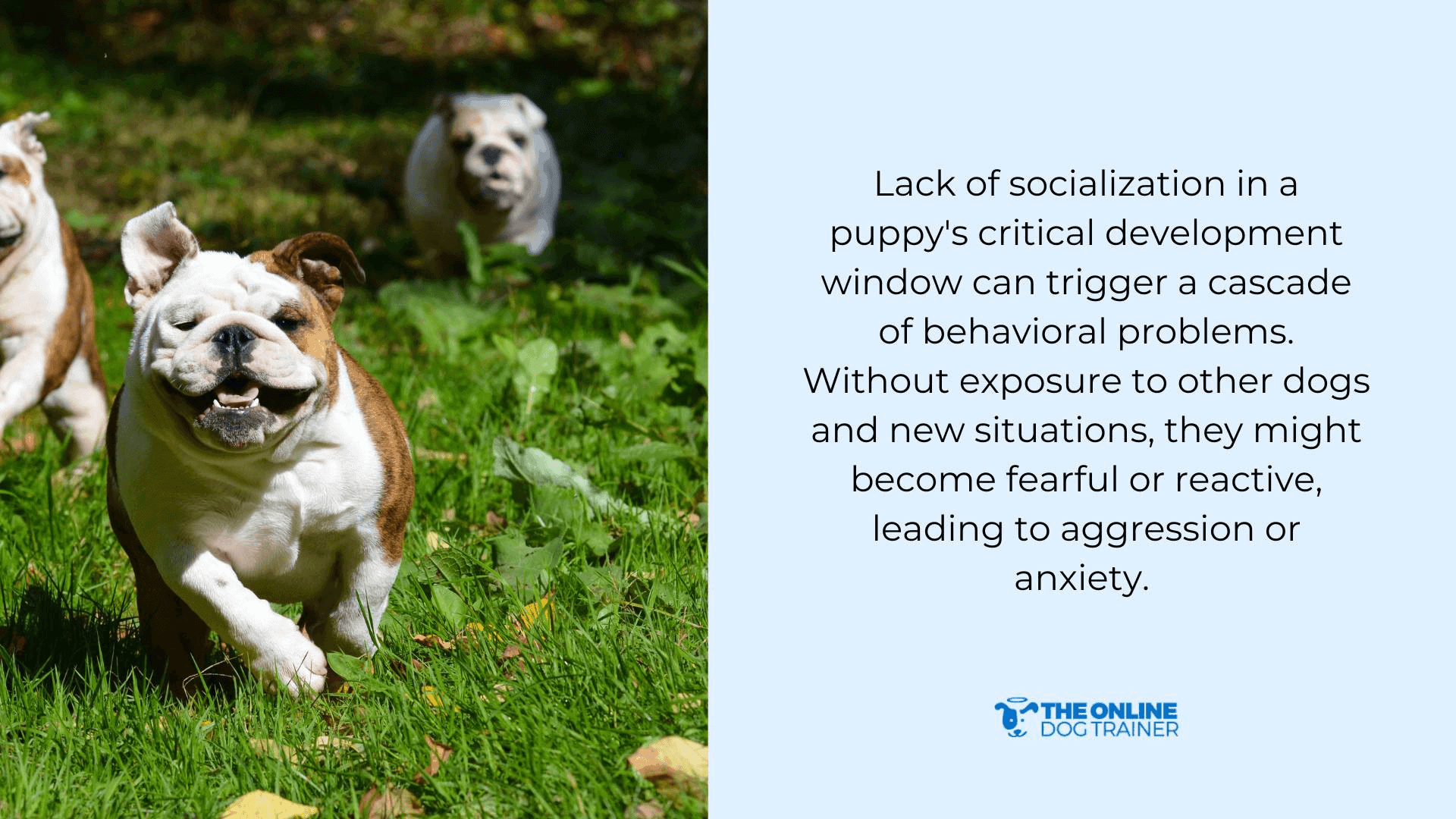
This missed opportunity to learn proper social cues can make them misinterpret situations. This lack of exposure can lead them to be reactive and — over time — aggressive. This problem leads to barking excessively, lunging at strangers, or cowering in unfamiliar environments.
How to Choose The Best Dogs: Choosing Beyond the Popular Breeds
Know More About Their First 8 Weeks
The first eight weeks of a puppy's life are crucial for development. During this period, you can get a glimpse of the dog's personality. Ask if the puppy was playful, dominant, or submissive. Additionally, inquire about their teachability and how well they respond to training methods.
Early socialization with other dogs and people is also important.
Ask About Their Experience
Understanding the dog's history can shed light on potential behavioral issues. Knowing their background can help you determine if these are manageable concerns you can address through training.
Consider The Size Of Your Property
Match the dog's size to your living space. A big dog like a Great Dane might not be ideal for a studio apartment, while a Chihuahua would likely feel overwhelmed in an ample open space. Choose a breed that will feel comfortable and have room to move around in your home.
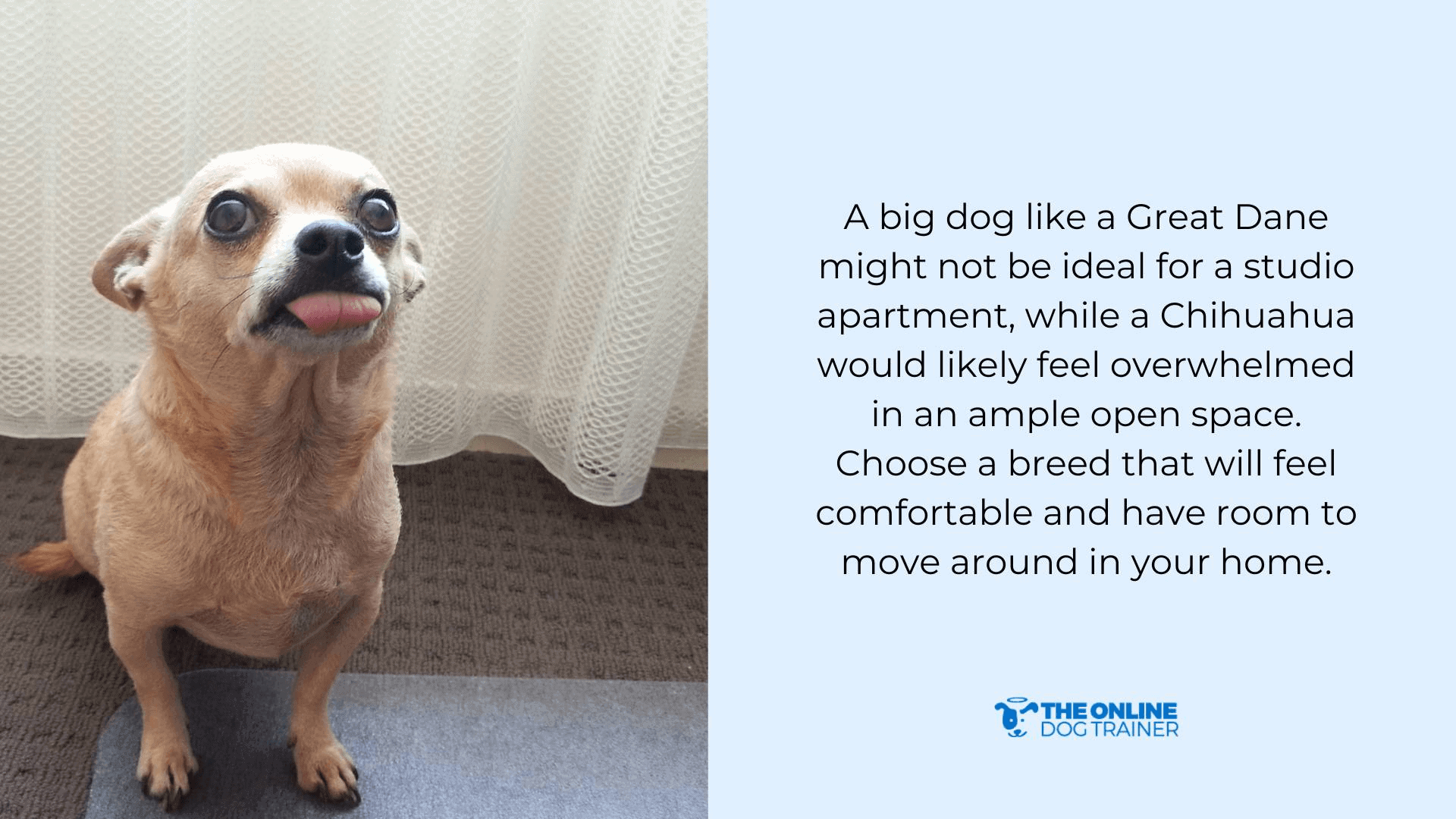
Check Their Energy Levels
This is one of the most important factors to consider!
Dogs come in all energy levels, from the high-octane Border Collie, which needs constant stimulation, to the mellow Bulldog content, which requires short walks and some playtime. Pet parents know this: fun-loving pups are also in a league of their own, energy-wise.
Be realistic about your lifestyle and how much exercise you can commit to providing. A high-energy dog left alone for long periods or without proper training can become destructive or develop behavioral problems.
Can You Commit to Training?
Training is essential for any dog, especially those of an active breed or one with potential behavioral issues. Consider your time commitment and willingness to train the dog.
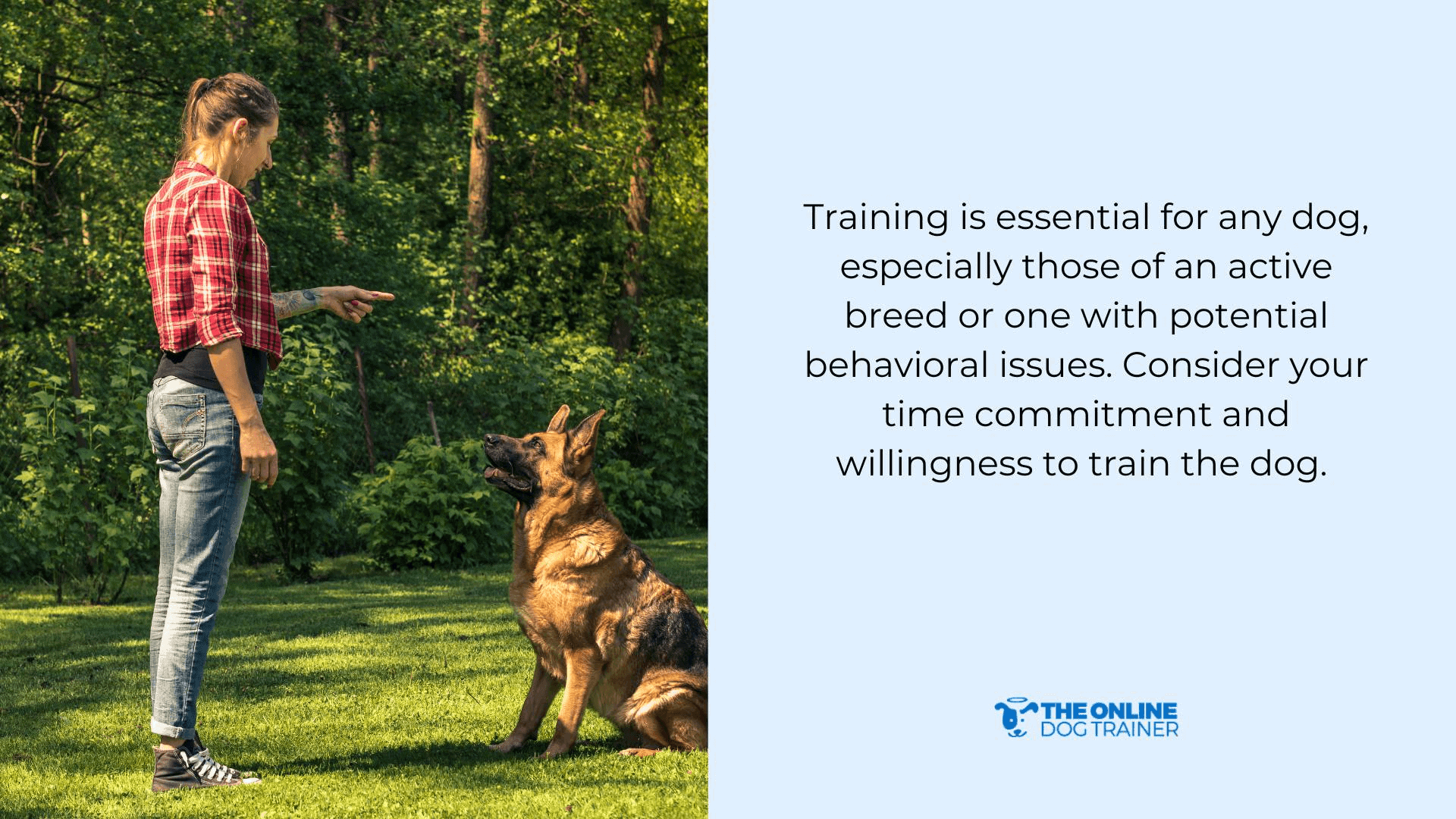
Active families with busy schedules fare better with a naturally easygoing dog that requires less training. At the same time, someone who enjoys spending time teaching tricks might find a more trainable breed rewarding.
By considering these factors in addition to breed popularity, you'll save your dog from having to experience reactivity or aggression issues (which, honestly, will be so hard for your dogs).
LEARN THE DOG CALMING CODE (FOR FREE!)Best Dogs to Own: The Proper Training for Any Dog Breed
There's no single “best” dog breed, as the perfect pup depends on your lifestyle and preferences. However, any dog breed can become a cherished companion with proper training. Here's a guide to unlock your furry friend's full potential:
Establishing a Strong Bond:
- Be The Leader in Their Eyes: Dogs are social creatures who crave leadership. Provide consistent rules, expectations, and gentle corrections to build trust and establish yourself as a reliable guide.
- Be In Charge With Everything: This doesn't mean dominance, but clear communication and setting expectations the gentle way. Control mealtimes, walks, playtime, and access to resources to show your dog you'll provide for their needs.
- Help Them Feel Safe and Protected: Offer a safe space for your dog to relax and retreat. Respond calmly to their anxieties and provide reassurance during stressful situations.
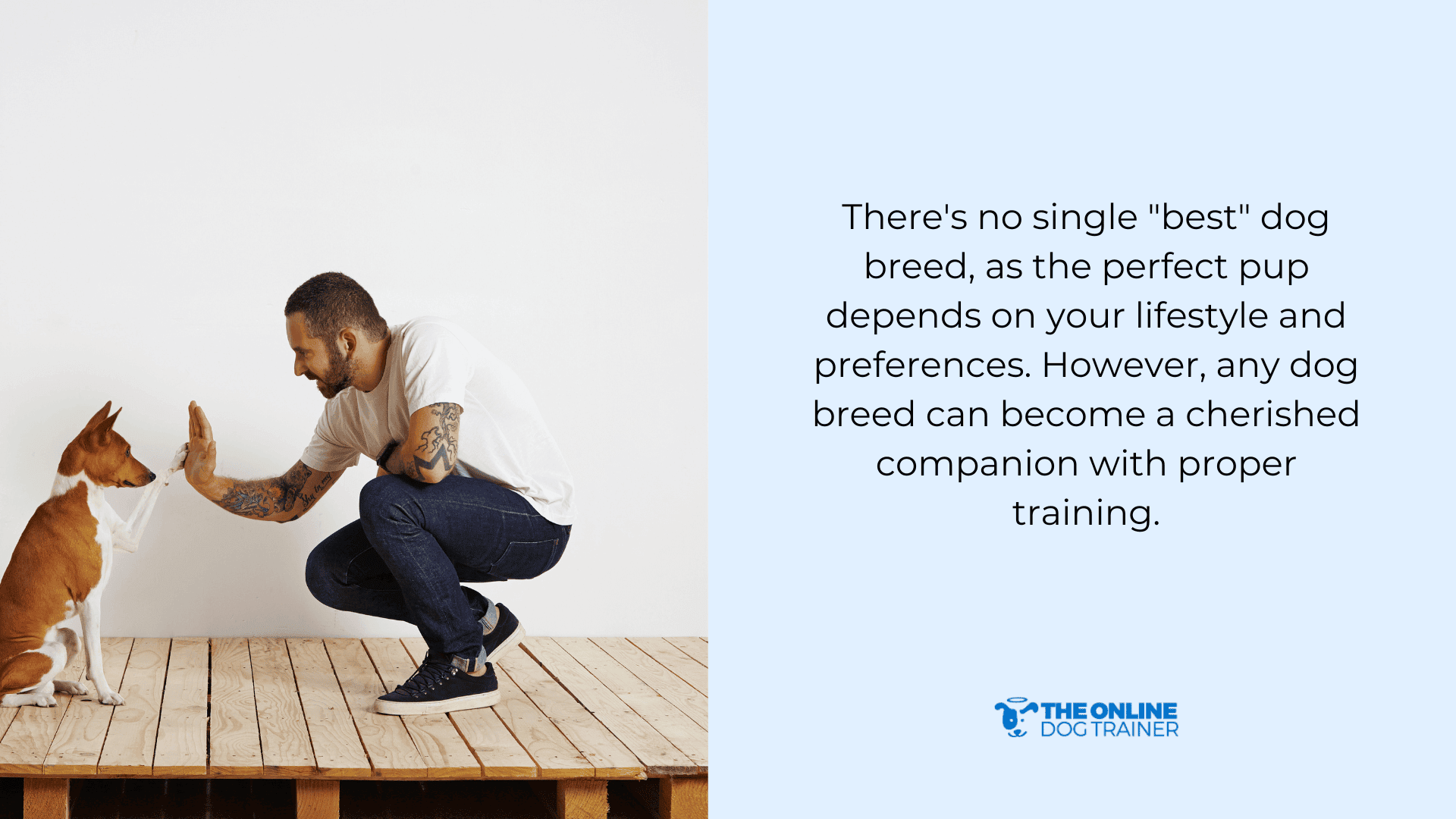
Building a Well-Behaved Canine:
- Use Treats the Right Way: Treats are powerful training tools, but overuse can lead to bad habits. Reward desired behaviors consistently, using treats to motivate and mark good choices.
- Address Behavior Issues Early On: Don't let bad habits solidify. Identify unwanted behaviors like chewing or barking and address them immediately with positive reinforcement techniques.
- Understand Dog Psychology: Consider their instincts and motivations when dealing with your dog. Training, exercise, and enrichment activities channel their energy into positive outlets.
Bonus Tip: Consider enrolling in a puppy socialization class or get a puppy program from a dog trainer for personalized guidance on raising your beloved dog.
Go Beyond the Breed Books
Most dog breed books discuss each dog being friendly, loving, and good-natured. However, 90% of dogs are categorized in that way, so when choosing a dog, you need to go further than what a breed book may say.
Of course, certain physical attributes can be categorized within each breed, and a dog's energy level can be estimated approximately by breed. But this doesn't focus on the actual characteristics of how a dog will behave, and this is where many people are caught out.
But that doesn't mean you must panic about choosing the ‘wrong' dog. It's merely about realizing you can't accurately predict what type of personality your dog will have, and you need to ‘roll with the punches' when you realize that your dog is not like it said in the breed book!
As I said at the start, everyone has their own opinion of what a dog from a particular breed will be like, and that is usually due to a personal experience, but just realize that it isn't a fact. I find it hard not to smile when somebody says we got a Yorkshire Terrier because we had one a while ago, and we wanted the same again, but this one is nothing like our last one!
Need Some Help Training Your Puppies At Home? Get My Puppy Coach Program
Find out more about how I've trained over 88,000 dogs here! Have a puppy? Get started with my Puppy Coach training program!
No matter what your breed is, love your dog!
Cheers,

~Doggy Dan




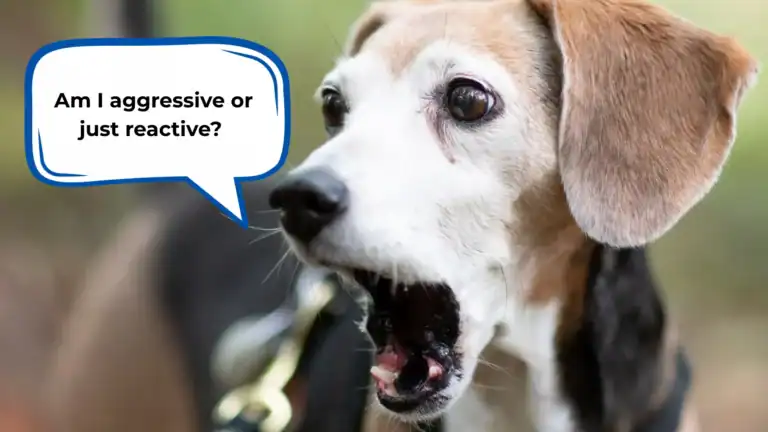
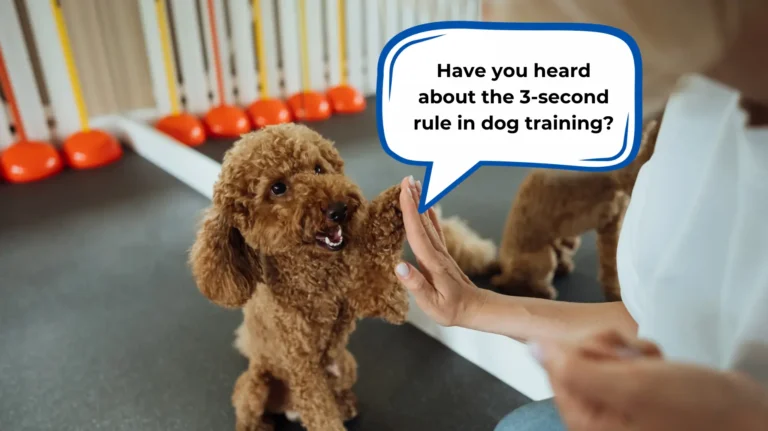

7 Responses
We have a 4 month old Bijon/Shih zhu mix. He is high energy and has a bad attitude. Moans and grows and barks if he doesn’t get his way or when he’s bored. Constantly biting our hands. We just don’t know what to do.
Hi Lucille….the behaviour you describe is quite normal for a puppy of that age, but the great news is you can easily change things provided you respond correctly and consistently. My Puppy Coach http://theonlinedogtrainer.com/lp-puppycoach-0-0-47-70/ course helps owners raise happy and well behaved puppies…we have a 60 day, 100% money back guarantee…all the best Doggy Dan
I am a bit surprised that Brittany Spaniels didn’t make your list. I’ve had several and they were about perfect. They were great around children and everything. I think they are the best. Thanks Terry
Hi Terry,
There were so many dog breeds that really could have made the cut and I had to make some tough decisions to narrow it down to my final list! It sounds like Brittany Spaniels would certainly make your list, thanks for sharing! Best, Doggy Dan
We got two mini doxin mixes when they were about six weeks old and have had for nearly 3 years now and we have a 11 year old mini doxin too. They are all well behaved. There are the siblings Jack and Rose (and no they are not titanic names it was just rose from nature and jack from Jack sparrow [pirates of the caribean]) Jack has ceazures and nips and rose is just fine but she is timid when it comes to eating her food. Kaluah the eldest is a little over weight though and LOVES the tennis ball, one throw of that thing and he will love you forever! they are SO SWEET! All of them are EXTREMLEY friendly and happy. 🙂
Hi Bella,
they sound like a lot of fun…and I am a bit of a fan of Kaluah the drink 🙂 Best, Dan